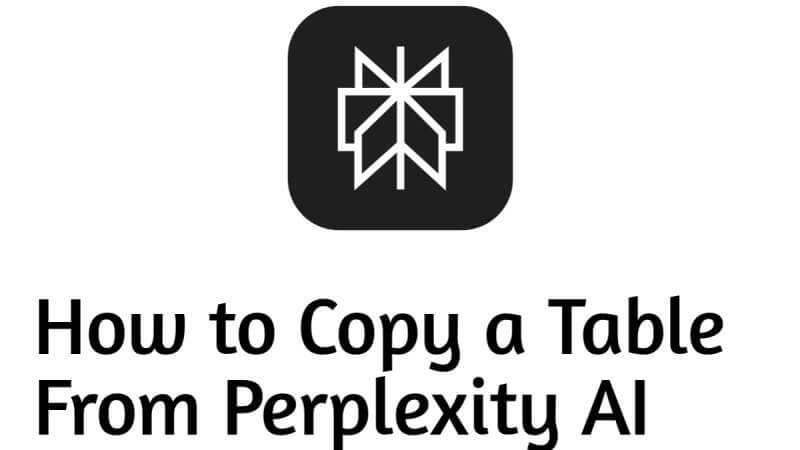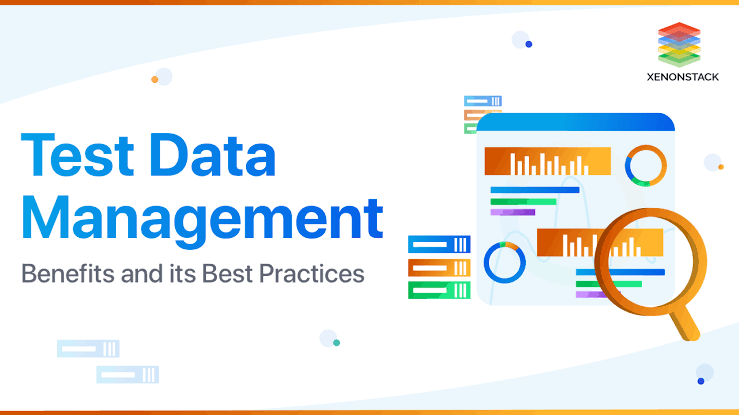Blockchain in Healthcare: Pros & Cons 2026

Blockchain technology has gained significant attention in recent years due to its potential to revolutionize many industries.
At its core, blockchain is a distributed ledger system that enables secure and transparent transactions without the need for intermediaries. While blockchain is often associated with cryptocurrencies like Bitcoin, its potential applications extend far beyond finance.
In this article, we will explore what blockchain is, how it works, and its potential applications.
What is Blockchain?
Blockchain is a distributed ledger system that enables secure and transparent transactions without the need for intermediaries.
A blockchain is a decentralized database that is maintained by a network of computers rather than a single entity.
Each block in the chain contains a record of transactions, and once a block is added to the chain, it cannot be altered or deleted. This makes blockchain an immutable and tamper-proof ledger.
How does Blockchain work?
Blockchain is a digital ledger technology that is based on a decentralized network of computers. It is essentially a database that is shared and maintained by a network of users, with no central authority controlling the data.
The basic principle behind blockchain is that every user on the network has a copy of the ledger, which they can add new information to. Once information is added to the blockchain, it cannot be deleted or modified, making it an immutable record of transactions.
Here is a simplified explanation of how blockchain works:
Transactions: Whenever a transaction is made on the blockchain, it is broadcast to the entire network of users.
Verification: The network of users then verifies the transaction to ensure that it is valid. This is done through a process called consensus, which can vary depending on the specific blockchain protocol being used.
Adding the Block: Once the transaction is verified, it is added to a block of transactions. Each block contains a unique code, known as a “hash,” which is generated based on the contents of the block.
Linking Blocks: The block is then added to the chain of previous blocks, with each block linked to the one before it through its hash code. This creates a secure and unalterable record of all transactions on the blockchain.
Network Maintenance: The blockchain network is maintained by a group of users, known as “nodes,” who perform tasks such as verifying transactions and maintaining copies of the ledger.
Decentralized Control: Since the blockchain ledger is shared and maintained by a decentralized network of users, there is no central authority controlling the data. This makes blockchain a trustless system, where transactions can be verified and executed without the need for intermediaries.
Potential Applications of Blockchain:
Finance: The most well-known application of blockchain technology is in the finance industry. Cryptocurrencies like Bitcoin and Ethereum use blockchain technology to enable secure and transparent transactions without the need for intermediaries.
Supply Chain Management: Blockchain technology can be used to track products throughout the supply chain, providing a transparent and auditable record of their journey. This can help reduce fraud, counterfeiting, and improve the efficiency of supply chain management.
Healthcare: The use of blockchain technology in healthcare has been proposed as a solution to various challenges, including data security and interoperability. By providing a secure and decentralized platform for sharing patient data, blockchain can improve the quality of care and reduce administrative burden on healthcare providers.
Identity Verification: Blockchain technology can be used to create secure and decentralized identity verification systems. By using cryptographic algorithms to verify identities, blockchain can eliminate the need for centralized identity verification systems, which are often vulnerable to fraud and hacking.
Real Estate: Blockchain technology can be used to streamline the process of buying and selling real estate by providing a transparent and auditable record of ownership and transfer. This can reduce the time and cost associated with traditional real estate transactions.
Blockchain technology has a wide range of uses, and it has the potential to revolutionize many different industries. Some of the most common uses of blockchain technology include:
Cryptocurrencies: The most well-known use of blockchain technology is for cryptocurrencies such as Bitcoin and Ethereum. Blockchain provides a secure and transparent platform for transactions without the need for intermediaries like banks.
Supply Chain Management: Blockchain technology can be used to track the movement of goods throughout a supply chain, ensuring that products are authentic, safe, and ethically produced.
Digital Identity: Blockchain technology can be used to create secure and decentralized digital identities, making it easier for people to prove their identity online without the need for intermediaries.
Voting Systems: Blockchain technology can be used to create secure and transparent voting systems, reducing the risk of fraud and ensuring that election results are accurate.

Healthcare: Blockchain technology can be used to securely store and share patient data, improving the quality of care and reducing administrative burdens on healthcare providers.
Real Estate: Blockchain technology can be used to create secure and transparent property ownership records, reducing the risk of fraud and improving the efficiency of real estate transactions.
Gaming: Blockchain technology can be used to create secure and transparent gaming ecosystems, allowing players to own and trade in-game assets.
Energy: Blockchain technology can be used to create peer-to-peer energy trading platforms, allowing individuals to buy and sell renewable energy directly to each other.
Blockchain in healthcare
Blockchain technology has the potential to transform the healthcare industry by addressing some of its most pressing challenges, such as data security, interoperability, and patient privacy.
By using blockchain technology to create a secure and decentralized platform for sharing patient data, healthcare providers can improve the quality of care and reduce the administrative burden on healthcare systems.
One of the key benefits of using blockchain technology in healthcare is improved data security. Medical records contain sensitive information that must be protected from cyber attacks and other security breaches.
By using blockchain technology, healthcare providers can create a secure and immutable digital ledger that is resistant to hacking and tampering. This can help prevent data breaches and other security incidents, which can have serious consequences for patient privacy and trust.
Another benefit of using blockchain technology in healthcare is improved interoperability. Medical records are often siloed in disparate systems, making it difficult for healthcare providers to access patient data when they need it.
By using blockchain technology, healthcare providers can create a unified platform for sharing patient data across different systems and organizations. This can improve care coordination, reduce duplication of tests and procedures, and improve overall patient outcomes.
Blockchain technology can also improve patient privacy by allowing patients to control who has access to their medical records.
Patients can use blockchain technology to grant or revoke access to their records, which can help prevent unauthorized access and protect sensitive information. This can also help build trust between patients and healthcare providers, which is critical for the success of any healthcare system.
Another potential application of blockchain technology in healthcare is clinical trial management. Clinical trials generate large amounts of data that must be carefully managed and analyzed.
By using blockchain technology, clinical trial data can be securely and transparently shared between different stakeholders, including researchers, clinicians, and regulators. This can help improve the efficiency of clinical trials, reduce costs, and accelerate the development of new treatments and therapies.
In summary, blockchain technology has the potential to revolutionize the healthcare industry by improving data security, interoperability, and patient privacy.
By using blockchain technology to create a secure and decentralized platform for sharing patient data, healthcare providers can improve the quality of care and reduce the administrative burden on healthcare systems.
As the technology continues to evolve, we can expect to see even more innovative use cases emerge in healthcare and other industries.
Pros of using blockchain in healthcare:
Enhanced data security: Healthcare organizations deal with sensitive and confidential patient data that needs to be protected. Blockchain technology provides a secure and tamper-proof way to store and share patient data.
By using cryptographic algorithms, blockchain ensures that data is encrypted and can only be accessed by authorized parties. This reduces the risk of data breaches and cyber-attacks, which have become a major concern in the healthcare industry.
Improved data interoperability: The lack of interoperability between different healthcare systems and providers has been a significant challenge in the industry.
Blockchain technology can help address this challenge by providing a decentralized and secure platform for sharing patient data across different systems and providers. This can improve the quality of care and reduce the administrative burden on healthcare providers.
Increased transparency: Blockchain technology provides a transparent and auditable way to track and trace transactions. This can be particularly useful in the healthcare industry, where transparency is crucial for ensuring patient safety and quality of care.
Blockchain can enable patients to access and control their health data, and also provide a transparent record of how their data is being used.
Streamlined administrative processes: The use of blockchain technology can reduce administrative costs and streamline processes such as claims processing, supply chain management, and clinical trials.
By eliminating intermediaries and enabling secure and automated transactions, blockchain can reduce the administrative burden on healthcare providers and improve efficiency.
Cons of using blockchain in healthcare:
Technical complexity: Blockchain technology is complex and requires specialized technical expertise to develop and implement. Healthcare organizations may not have the necessary expertise or resources to effectively use blockchain technology, which could limit its adoption.
Regulatory challenges: The use of blockchain technology in healthcare may be subject to regulatory challenges, particularly around data privacy and security. Regulations around data sharing and ownership may need to be updated to accommodate the use of blockchain in healthcare.
Limited scalability: Blockchain technology is still in its early stages of development, and its scalability is still limited. As the volume of healthcare data continues to grow, blockchain may struggle to keep up with the demand for storage and processing power.
Cost: Implementing blockchain technology can be expensive, particularly for smaller healthcare organizations with limited resources. The cost of developing and maintaining a blockchain network can be prohibitive for some organizations, which could limit its adoption.
Conclusion
The global blockchain in healthcare market is expected to expand at a CAGR of over 60% during the forecast period 2022-2028. The market’s growth can be attributed to the rising occurrence of data leaks and breaches and the growing need to address these concerns.
Information updates or alterations are not permitted on the blockchain, thus, ensuring high security of the data or information. This is expected to drive industry growth in the coming years.
Demand for blockchain technology is driven by its soaring use for critical functions such as verifying the authenticity of returned drugs, counterfeit prevention, pharmaceutical supply chain compliance, clinical trial transparency and traceability, and improving the reliability and quality of clinical trial data.
Blockchain is becoming increasingly popular amongst many industries and that’s particularly linked to its widespread transparency & security, follow up on the Top 3 Industries That Will Be Reshaped By Blockchain 2026 to stay on top of the latest Blockchain technology trends.
That’s it. Meanwhile, you could leave a rating for this blog post if it was helpful to you in any form of way. Also, you could leave your thoughts and questions in the comments, if you have any.






